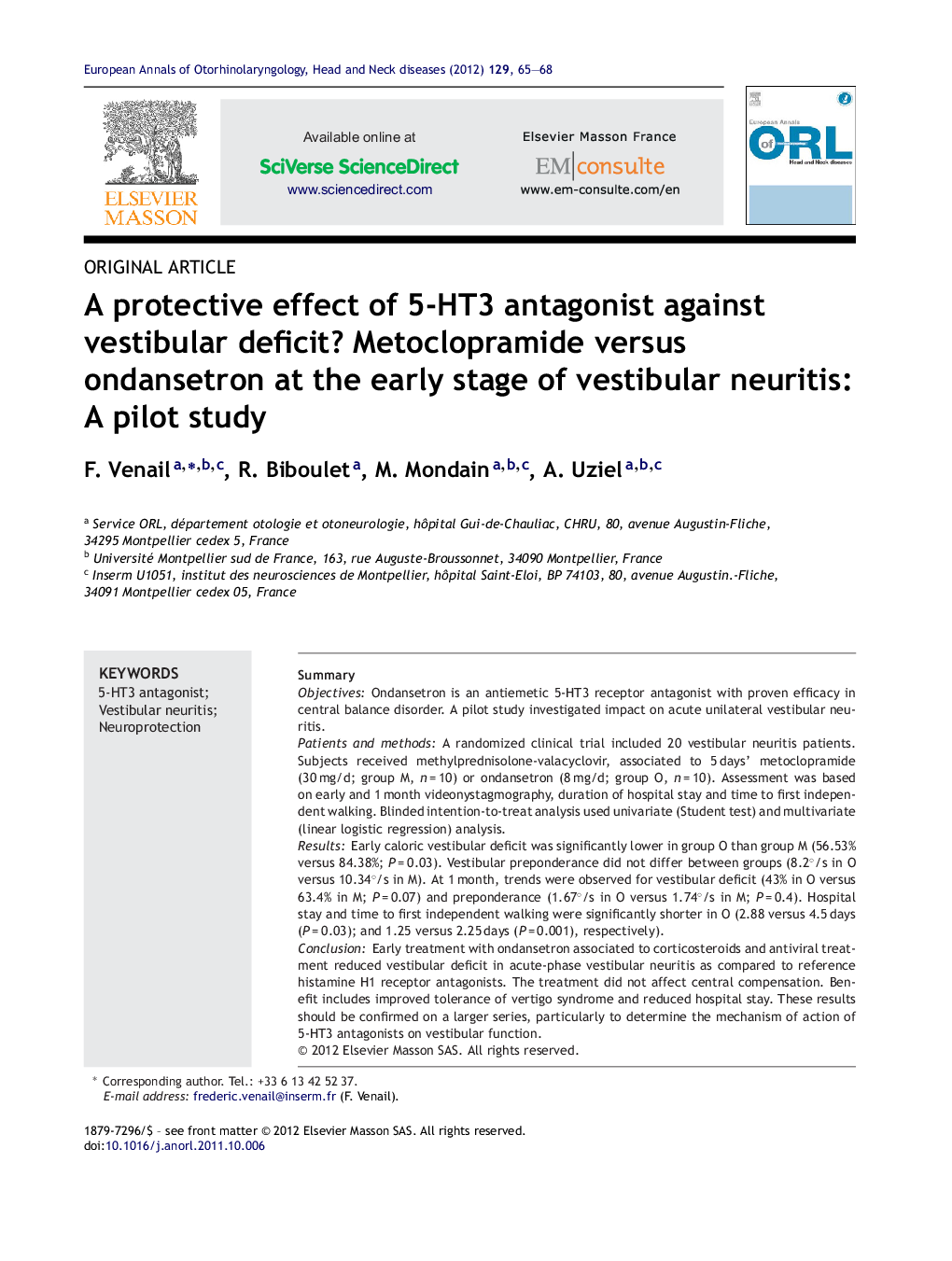| Article ID | Journal | Published Year | Pages | File Type |
|---|---|---|---|---|
| 4110330 | European Annals of Otorhinolaryngology, Head and Neck Diseases | 2012 | 4 Pages |
SummaryObjectivesOndansetron is an antiemetic 5-HT3 receptor antagonist with proven efficacy in central balance disorder. A pilot study investigated impact on acute unilateral vestibular neuritis.Patients and methodsA randomized clinical trial included 20 vestibular neuritis patients. Subjects received methylprednisolone-valacyclovir, associated to 5 days’ metoclopramide (30 mg/d; group M, n = 10) or ondansetron (8 mg/d; group O, n = 10). Assessment was based on early and 1 month videonystagmography, duration of hospital stay and time to first independent walking. Blinded intention-to-treat analysis used univariate (Student test) and multivariate (linear logistic regression) analysis.ResultsEarly caloric vestibular deficit was significantly lower in group O than group M (56.53% versus 84.38%; P = 0.03). Vestibular preponderance did not differ between groups (8.2°/s in O versus 10.34°/s in M). At 1 month, trends were observed for vestibular deficit (43% in O versus 63.4% in M; P = 0.07) and preponderance (1.67°/s in O versus 1.74°/s in M; P = 0.4). Hospital stay and time to first independent walking were significantly shorter in O (2.88 versus 4.5 days (P = 0.03); and 1.25 versus 2.25 days (P = 0.001), respectively).ConclusionEarly treatment with ondansetron associated to corticosteroids and antiviral treatment reduced vestibular deficit in acute-phase vestibular neuritis as compared to reference histamine H1 receptor antagonists. The treatment did not affect central compensation. Benefit includes improved tolerance of vertigo syndrome and reduced hospital stay. These results should be confirmed on a larger series, particularly to determine the mechanism of action of 5-HT3 antagonists on vestibular function.
